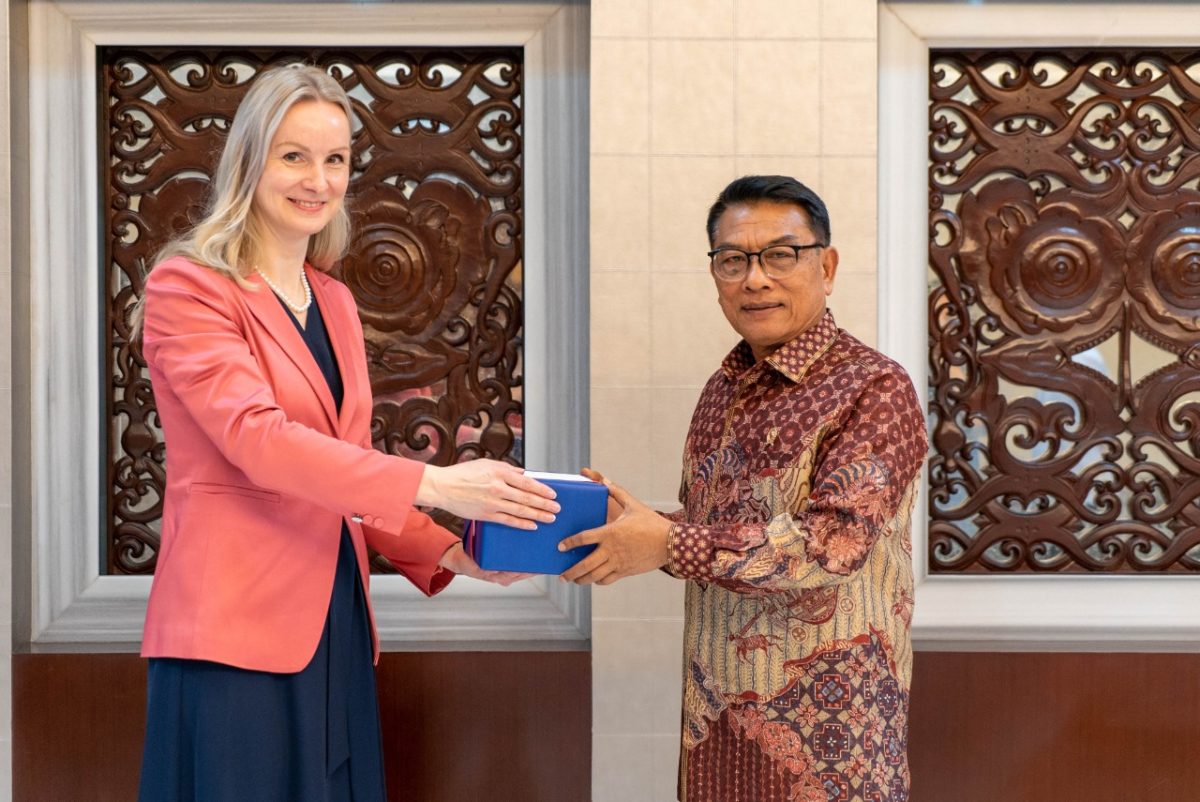Jakarta – Finland has shown an interest in Indonesia’s Nusantara Capital City (IKN), bringing some proposals to collaborate on the city development and foster the city-led sustainable development.
Meeting with the Presidential Chief of Staff Dr. Moeldoko, on Tuesday (24/5) at the Bina Graha Building, Jakarta, Finland’s Deputy Minister of Economic Affairs, Ann-Mari Kemell expressed the interest of the European country in developing the new capital city in East Kalimantan.
“Indonesia should indeed learn from Finland on how to prepare a road-map for developing an environmentally friendly city, so that it can support the 2060’s carbon neutral goal,” said Moeldoko.
According to the EPI index in 2016 (Environmental Performance Index) prepared by Yale and Columbia Universities, Finland is named the world’s cleanest and greenest country.
The world’s happiest country has been actively campaigning for the concept of sustainability. There are at least 6 cities in Finland that have succeeded in becoming eco-friendly and sustainable urban models, namely Helsinki, Espo, Vantaa, Turku, Tampere and Oulu.
“We came to the Executive Office of the President to share experiences with Indonesia in building sustainable cities. Moreover, the vision of building IKN is very much in line with the vision of Finland,” said Ann-Mari Kemell.
The Chief of Staff to the President, Dr. Moeldoko highly appreciated Finland’s interest to collaborate with Indonesia to build a sustainable IKN.
The relocation of Indonesia’s capital city to the Nusantara city in East Kalimantan, said Moeldoko, showcases Indonesia’s tangible efforts in globally reducing carbon emissions. IKN sends a message on the urgency of tackling climate change through the establishment of low-carbon cities.
Among the first developing nations committed to the 2015 Paris climate agreement, Indonesia’s nationally determined contribution (NDC) plans to slash its emissions by 29% by 2030 against the business-as-usual projection. Within international funding, or the “conditional” scenario, the target goes up to 41%. Indonesia has also set its new net zero emissions or carbon-neutral target by 2060, which is 10 years earlier than initially indicated by the government.
In addition to the ratification of the Paris Agreement, Indonesia has enacted policies and programs to combat climate change by committing to reduction goals, setting domestic sectoral targets, and passing legislation and regulations. Among them is the Low Carbon Development and Green Economy policy stipulated under the National Medium-Term Development Plan (RPJMN) for 2020-2024.
